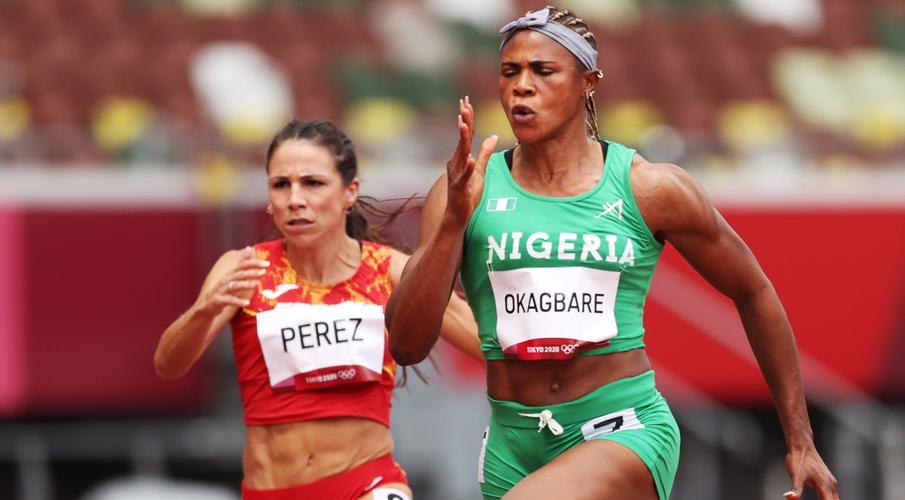Blessing Okagbare – an Olympic and world silver medallist and double Commonwealth champion – has been banned for 10 years by the Athletics Integrity Unit.
The AIU announced that the 33-year-old Nigerian sprinter was banned for five years for the presence and use of multiple prohibited substances and five years for her refusal to co-operate with the investigation.
This was after she tested positive for human growth hormone and EPO.
The use of HGH was found in an out-of-competition sample of Okagbare collected on July 19 before it was reported to the AIU on July 30, the day upon which Okagbare won her 100m heat at the Olympics. She was then provisionally suspended one day after that race and forced to fly home from Tokyo.
In addition, Erythropoietin (EPO) was found in another of the Nigerian’s out-of-competition samples, on June 20. Two days earlier, Okagbare had run a wind-assisted 10.63 for 100m in Lagos.
Last October, Okagbare was charged with the above two doping violations and also failure to co-operate with an investigation into her positive samples.
Brett Clothier, head of the AIU, said a 10-year ban was “a strong message against attempts to cheat”.
In a recent AW interview for our February issue, Clothier said: “I hope that people can see athletics is standing out from the crowd and actually takes the issue of doping seriously.”
Okagbare has 30 days to appeal against the AIU’s disciplinary tribunal’s decision at the Court of Arbitration for Sport (CAS).
Credit: Athletic Weekly



